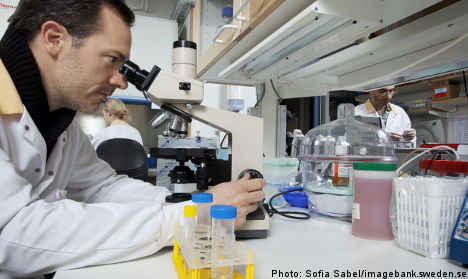The investment is part of a three year process in which 11.5 billion kronor will be invested, with gradually increasing installments from 2013 until the full four billion kronor will come into effect in 2016.
“This is a research contribution at a historically high level. We’re reaching levels that we’ve never been at in Sweden,” said Education Minister Jan Björklund to the TT news agency.
“We hope the investment into research and innovation with provide the footing for Sweden to be strong in the future. This lays the foundation for new jobs,” said Prime Minister Fredrik Reinfeldt.
A large part of the investment will go towards high schools and universities, and also to “Life Science” – a programme for medical research.
“The focus with Life Science is about how we can be healthier and live longer. It’s about preventing and curing Alzheimer’s, Parkinson’s, cancer and stroke,” said Björklund.
Uppsala University also welcomes the government’s decision.
“It’s great that the government, despite the strained global economy, chooses prioritize research. These investments are also largely in line with our own priorities, which is of course encouraging,” said university head Eva Åkesson in a statement.
TT/The Local/og



 Please whitelist us to continue reading.
Please whitelist us to continue reading.
Member comments